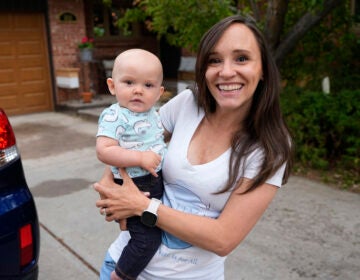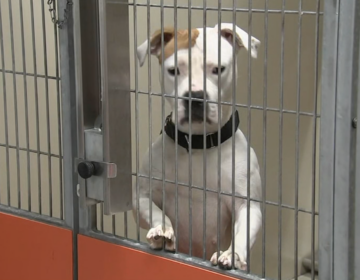The healthy attitudes toward life that illness and death can bring

(Palliative care image courtesy of Shutterstock.com)
“The dying don’t worry about detail.”
That’s a stunner of an insight from Dr. Nina O’Connor, a palliative care expert at the Hospital of the University of Pennsylvania. She says it in an easy, natural way, almost in passing.
Her work with serious illness and death helps bring some perspective to the rest of her life. “My palliative-care work makes me appreciate the big things more,” she says. “I sweat the small stuff less.”
She explains, “I have three children, so that makes me set limits. I pick them up, and they immediately need me to help with dinner, homework. So it makes me be present to them.”
A sense of purpose to cloak the pain
O’Connor works mostly with patients who are seriously ill, managing their symptoms and helping them understand their options. She also manages the team of physicians, nurses, chaplains and social workers who help the patients, and she directs the Hospice and Palliative Medicine Fellowship at the University of Pennsylvania.
“We are about providing care regardless of the outcome,” O’Connor says. “It’s a very different way of being with patients and families. We accompany patients and families through this transition. We bring a comfort level with having those [difficult] conversations. Families know we can talk about it and will still be there and will respect their choices about treatment. That sense of why you’re doing it helps prevent burnout.”
The dying don’t worry about detail. But in her work as a doctor, a manager and a professor, O’Connor must. She says she thinks about the issue of self-care for her staff a lot. “For myself, because I do this work,” she says, “but also for the team, to help the team keep doing this work, and for the fellows, to help them learn to do this work long-term. They have to be able to do this work for the decades of a career.”
That resonated with what I’d heard others say on the subject — that talking about avoiding burnout is one thing, but putting it into action, especially at the level of training, is another.
Techniques vary from workplace to workplace, and even in her own context of caring for patients who are dying, O’Connor says she doesn’t have all the answers. “But I do have ideas about what works for me,” she says.
Belief in the work
“One of the things you need in this work is belief in what you’re doing. We spend a lot of time reflecting on the work we do. We spend time with the team and fellows processing — the cases that bother us, new ideas, resources for reflection. We make a space where, as a team, we can all speak freely about what’s on our minds and hearts.”
In other words, processing things at work can sometimes be more helpful than bringing it home. It also underscores the importance of teamwork.
“For especially difficult cases, like a younger person who is dying, we go in pairs so there’s someone right there to help you and the family,” says O’Connor. “Doing the visits together is really helpful. It gives you two perspectives on the same situation.”
As someone who’s worked as a chaplain in challenging medical situations, I too have valued the perspective of other professional caregivers.
“They’re complementary perspectives,” says O’Connor. “And each team member has someone to process the experience with.”
Believing that you are making a difference, that you are doing good work, is fundamental to thriving in this kind of work. And the ability to process those experiences with someone who shares your passion and who understands the daily specs, seems like a good way to help stay in touch with that belief.
“Often palliative-care work is not a first career choice,” says O’Connor. “Many come to it from a different medical field. But taking care of patients who are at the end of life, meeting the families where they are, creating a dignified transition — this is all very important. We are driven by that strong motivation that it’s a respectful and important thing to do for families.”
The whole human
Such self-care techniques and interdisciplinary team models are catching on elsewhere in medicine. And similar patterns are happening in other fields and workspaces. I am reminded of a recent Fast Company article, “Is the MSW the new MBA?” about how business schools are recognizing the need for social-workers’ skills in the business world. The whole human is important in any field.
O’Connor’s insights about perspective and meaning in her work brought to mind a passage I’d just read from a recent book by a favorite author of mine, Anne Lamott. In the preface to her recent book “Small Victories: Spotting Improbable Moments of Grace,” Lamott writes:
“The worst possible thing you can do when you’re down in the dumps, tweaking, vaporous with victimized self-righteousness, or bored, is to take a walk with dying friends. They will ruin everything for you. First of all, friends like this may not even think of themselves as dying, although they clearly are, according to recent scans and gentle doctors’ reports. But no, they see themselves as fully alive. They are living and doing as much as they can, as well as they can, for as long as they can.”
Maybe that’s perspective that the palliative-care teams can offer to us on all of our thresholds.
WHYY is your source for fact-based, in-depth journalism and information. As a nonprofit organization, we rely on financial support from readers like you. Please give today.




